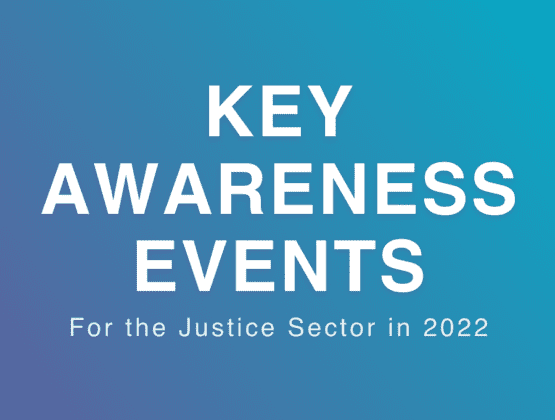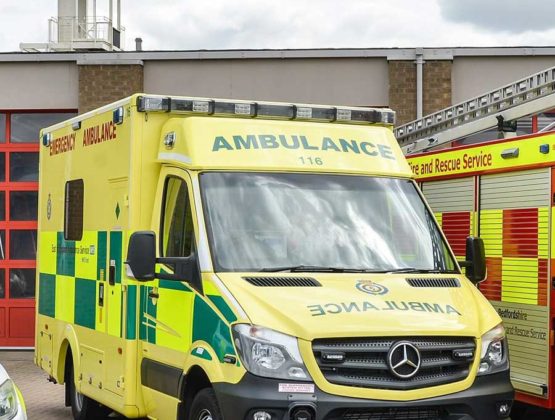Published by Skills for Justice
Emergency Services Day 2021: Celebrating Policing Careers
Date 06.09.21

Police Uplift Programme
Since its inception in July 2019, the Police Uplift Programme has pledged to put another 20,000 police officers on the streets by March 2023. This provides a great opportunity to join the Police Service, at a time when sufficient resources are being made available to equip police forces.
As we head into Emergency Services Day 2021, it’s fair to say that our 999 heroes deserve a huge round of applause for what has been one of the most challenging years in their history.
Join us this year in celebrating the incredible work of our UK Police Service and learn about ways you can make a difference in helping to keep our communities safe.
What is Emergency Services Day?
Emergency Services Day is a national day which recognises and supports the work of those that help contribute towards public safety.
It is celebrated on the 9th September every year, and backed by HM The Queen and the Prime Minister, to honour the people that work tirelessly to keep our communities safe.
Emergency Services Day:
- Promotes our Emergency Services heroes who have served/are still serving
- Promotes career and volunteering opportunities across the emergency services
- Promotes responsible use of emergency services
- Provides public awareness on essential life-saving skills
- Promotes emergency services charities and the important work they do
- Promotes campaigns led by frontline emergency services
Supporting Emergency Services Day 2021
Also known as 999 Day, the celebrations start at 9am to represent the 9th hour of the 9th day of the 9th month.
It doesn’t take an awful lot to show your support to our amazing emergency services staff. The simplest way you can make a difference is to take a few seconds out of your day to say hello or give them a wave when passing by!
To help raise awareness of Emergency Services Day, you can show your support on social media using the hashtags #EmergencyServicesDay and #999Day, and tagging your friends and family, whilst giving a shout out to the wonderful people who look after their communities.
Follow @Skills_Justice for updates on how to support your workforce this Emergency Services Day 2021.
All roles are important across the emergency services, not just ‘frontline’ staff, but all people who work for the emergency services including volunteer staff, charities, and those who lead campaigns to promote the important work done by those who care, protect and keep the public safe.
Celebrating Policing Careers
The UK Police Service has had an extraordinary year, experiencing change on a scale that has not been seen for generations. They have worked continuously to keep services running, despite the many challenges they have had to face.
Celebrating policing and the career opportunities it provides can make a world of difference to emergency services staff and their families. A policing career comes with a high level of personal accountability, duty, and responsibility, requiring courage and bravery both on and off duty.
By celebrating those who have served in policing, we are able to recognise and demonstrate the value of their sacrifices.
Policing Careers and Roles
Everyone has their own unique perspective for wanting to join the Police Service, and there is almost always a perfect role awaiting them.
Whether you want to work on the frontline, support the intelligence units, or be a part of the community outreach teams, a policing career can be incredibly rewarding.
The four main types of roles in the Police Service:
- Police Constable
- Special Constable (volunteer police officers)
- Police Community Support Officers (PCSOs)
- Civilian Staff (Police Staff)
Each role has an equally important part in preventing crime, building trust within their communities, and providing information that contributes towards public safety.
Policing Skills
Most police units operate using a variety of these roles, both for frontline and office-based support, and there’s ‘no one size fits all’ when it comes to the most suitable type of person.
The main skills required to help you succeed in the Police Service are the ability to communicate effectively, remain calm in challenging situations, a sense of responsibility, and great team working, problem solving and negotiation skills.
Every police force will have varying criteria for each role, one of the most important being that you reflect the community in which you serve. If you can relate to the issues faced by your local community and want to help, make it a safer place, then you should consider how policing could be extremely fulfilling for you.
A Diverse Range of Policing Jobs include:
- Emergency Response
- Community Outreach and Support
- Criminal Investigation Department (CID)
- Child Protection
- Financial Fraud
- Covert Operations & Intelligence
- Dog Handlers
- Counter-Terrorism
- Firearms Branch
- Forensic Services
- Events Planning
- Human Resources
- Professional Standards
Right now, it’s a great time to consider a career in the Police Service, particularly since the introduction of the Government’s pledge to increase the numbers of police officers and supporting units.
As of June 2021, the Government has recruited nearly 10,000 police officers through the funding of this programme, and is well on its way to achieving their target.
The Police Uplift Programme has helped recruit, train, and equip police forces with new officers, strengthening their ability to combat crime, increase community engagement and ensure ongoing public safety.
If you’re considering a career in the police, you can find more information on your police force’s website.
Challenges of the Police Uplift Programme
With a further 50,000 new police officers due to be recruited over the lifetime of the Police Uplift Programme, there may be several challenges ahead.
Police organisations need to have a good understanding of the implications of a proportionally younger workforce, and what they can do to help create a positive working environment for new entrants.
Recruiting thousands of people to join an organisation is one half of the battle and retaining these individuals will be the real test. Younger generations may have higher expectations when it comes to their wellbeing and receiving adequate levels of support and development opportunities.
Ensuring that first line managers have the confidence and capabilities to provide opportunities for learning and development with effective coaching and mentoring sessions, can go a long way to supporting and retaining newly appointed police officers.
Skills For Justice
At Skills for Justice, we support the continual development of a highly skilled and sustainable emergency services workforce, particularly the contribution made by the UK’s Police Service.
As one of the UK’s leading advisors for workforce development and consultancy, we can provide several cost-effective workforce models and solutions to ensure efficient service delivery, with the use of:
- Diagnostic Tools – to assess, benchmark, challenge and improve performance
- Consultancy Services – for workforce planning, reviews, career development frameworks
- Research Services – maximise social value, reduce skills gaps, improve business intelligence
- Apprenticeships – expert workforce development, coaching and mentoring
- Quality Assurance – guidance on streamlining systems, policies and procedures
We believe that the key to success is understanding where you are and where you have been, before crafting an approach to getting you to where you want to be.
If you work in the public sector and are keen to see how Skills for Justice can help with your organisational development, get in touch – we would love to hear from you!
Sign up to receive news and updates from Skills for Justice
"*" indicates required fields




